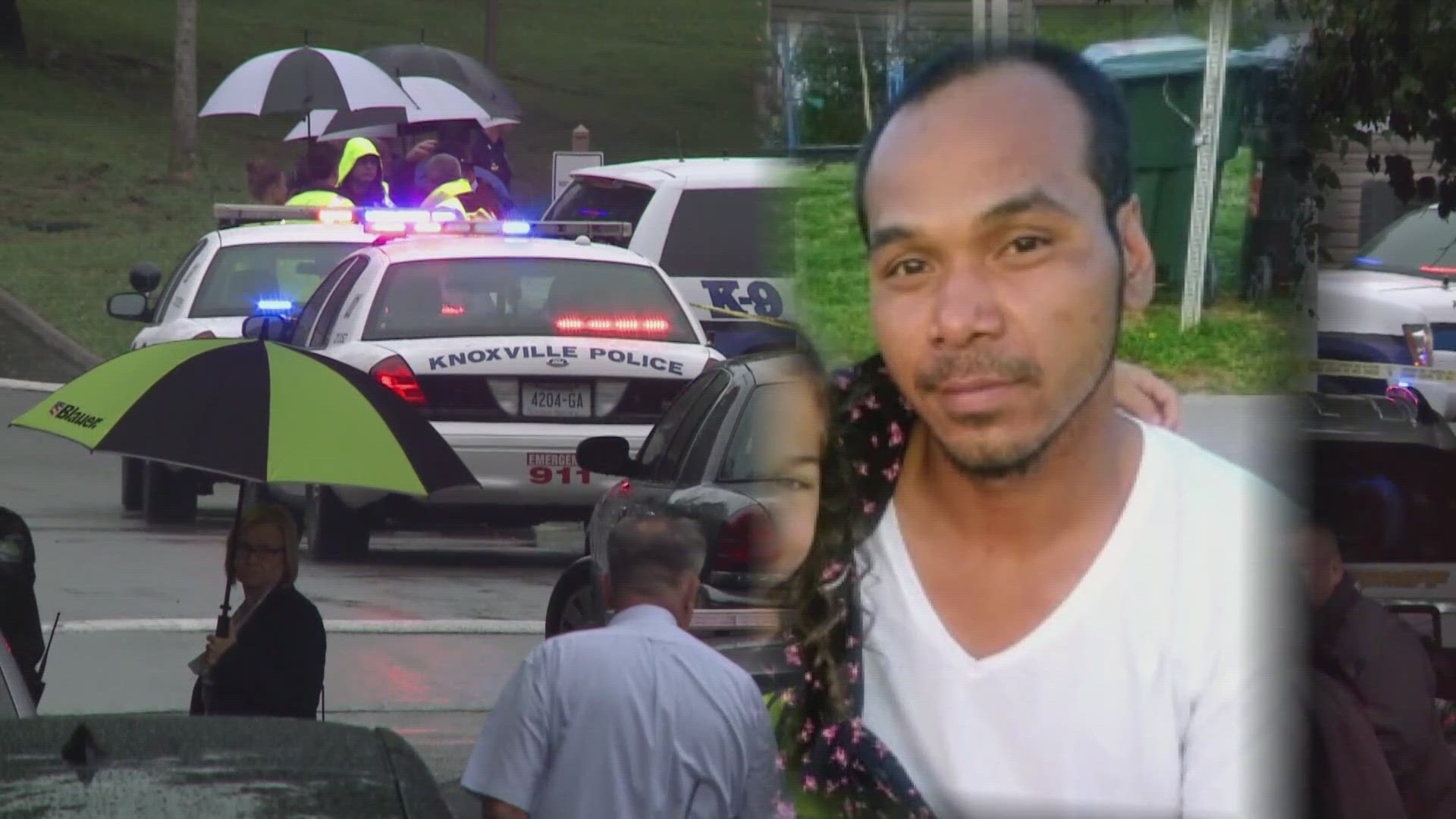KNOXVILLE, Tenn. — A U.S. District Court jury in Greeneville, Tenn. on Thursday determined a KPD officer was not at fault or liable for shooting and killing Channara "Philly" Pheap in 2019.
KPD K-9 Officer Dylan Williams shot and killed Pheap, 33, after a struggle outside an apartment complex off Merchant Drive in Northwest Knoxville on Aug. 26, 2019.
The Knox County Sheriff's Office investigated the shooting. Later that year, District Attorney General Charme Allen cleared Williams of criminal wrongdoing. A memorandum from Assistant District Attorney General Sean F. McDermott said the shooting was "justifiable."
Pheap's family later sued Williams in 2020, and on Tuesday the civil trial began to determine if Williams used excessive force against Pheap. Plaintiffs argue Pheap tried to run away from Williams twice, and Williams shot Pheap in the back as he was running away a third time, the order said.
KPD released a statement shortly after the civil trial ended Thursday afternoon, saying the jury's decision supported its position that Williams' "use of force was reasonable" based on the situation he was in. You can read the full statement below:
"The circumstances that led to Channara Pheap’s death in August 2019 are tragic, and I extend my deepest sympathies to everyone who was impacted or continues to be impacted by his death, especially Channara’s family.
This incident has also weighed heavily on our department for the past four years, most significantly on Officer Williams. As I sat through two days of the civil trial this week in Greenville, I saw firsthand the emotional toll this case has taken on Officer Williams. Despite that, Officer Williams has remained committed to the selfless service of his community.
In addition to the incident being thoroughly vetted by our Internal Affairs Unit for any policy violations and District Attorney General Allen for criminal wrongdoing, it has now been reviewed by a jury in civil federal court. The conclusion reached by that jury supported what we believed in 2019 and believe now – the use of force was reasonable given the exceptional position that Officer Williams was put in.
Our department and Dylan are glad to have this behind us. I am proud of how Dylan has carried himself and the support the members of our department has shown him since this incident occurred. Since it happened, despite the immense weight he has carried, Dylan has made himself an indispensable member of the Investigations Bureau. I have no doubt that he will continue to be a valuable member of our team and a dedicated community servant."
The Pheap family's legal team, lawyers Lance Baker and Josh Hedrick, issued a brief statement to WBIR on Thursday afternoon.
“We are grateful for the jury’s time and attention. We’re obviously disappointed in the result, and we are evaluating our next steps.”
Williams was looking for the suspect in a hit-and-run case, the memo from the DAG's office said. He saw the sedan police believed was involved at an apartment complex in Northwest Knoxville and tried to find the owner, McDermott wrote.
Witnesses said Pheap "'had the cop down on the ground' and described the two pulling and struggling down the hill," the memo said.
The autopsy report said Pheap was not shot in the back, McDermott wrote. "It is essentially a side-to-side shot, with Pheap's left side facing the gun," the memo said.
Days after the fatal shooting, the Knoxville City Council passed a resolution asking KPD to start the process of outfitting officers with body-worn cameras. Now, every patrol officer wears a camera.
Williams took the stand Tuesday.
He's still employed as an officer and a homicide investigator with KPD. With Knoxville Police Chief Paul Noel in attendance, Williams said he felt his life was in danger during the interaction with Pheap.
People who lived at the apartment complex pointed Williams to a higher floor of the apartment complex, he told the jury. He said he found Pheap, who looked nervous. Dashcam video, entered as evidence, shows a struggle between Pheap and Williams.
"He was able to spin and get on top of me," Williams told jurors. "He began using his forearm and hand to press down on my Adam's Apple."
Williams said he asked Pheap to stop running. He did, then lunged for his taser, he said.
"My mind is trying to process what is happening," an emotional Williams told the jury, who was watching closely. "My life flashed before my eyes. I had a 1-year-old son and a wife. I'm never going to see them again."
Photos entered as evidence show a wire from the taser wrapped around Williams. He told the jury he was worried the taser would incapacitate him, and Pheap would be able to shoot him with his own gun.
"I come up as quick as I can, I pull my handgun, I see he still has the taser, I fired two rounds," Williams said, again, his voice breaking with emotion.
Attorneys for the Pheap family pushed back.
"You're not telling us you ever were incapacitated," said Joshua Headrick, attorney for the Pheap estate.
"All I recall is feeling the probes," Williams said.
Pheap's attorneys argued Pheap was trying to run away from Williams, and didn't pose a threat to the officer.
"He was running away, unarmed," said Lance Baker, an attorney for the Pheap family, during opening statements.
An animated attorney Gary Prince, on behalf of Williams, argued the officer's life was in danger and he didn't want to kill Pheap.
"Pheap is on top of him, he's choking him. Choking him," Prince said, re-enacting the interaction for the jury. "That's when he first fears for his life.
U.S. District Court Judge Clifton L. Corker, presided over this case.

